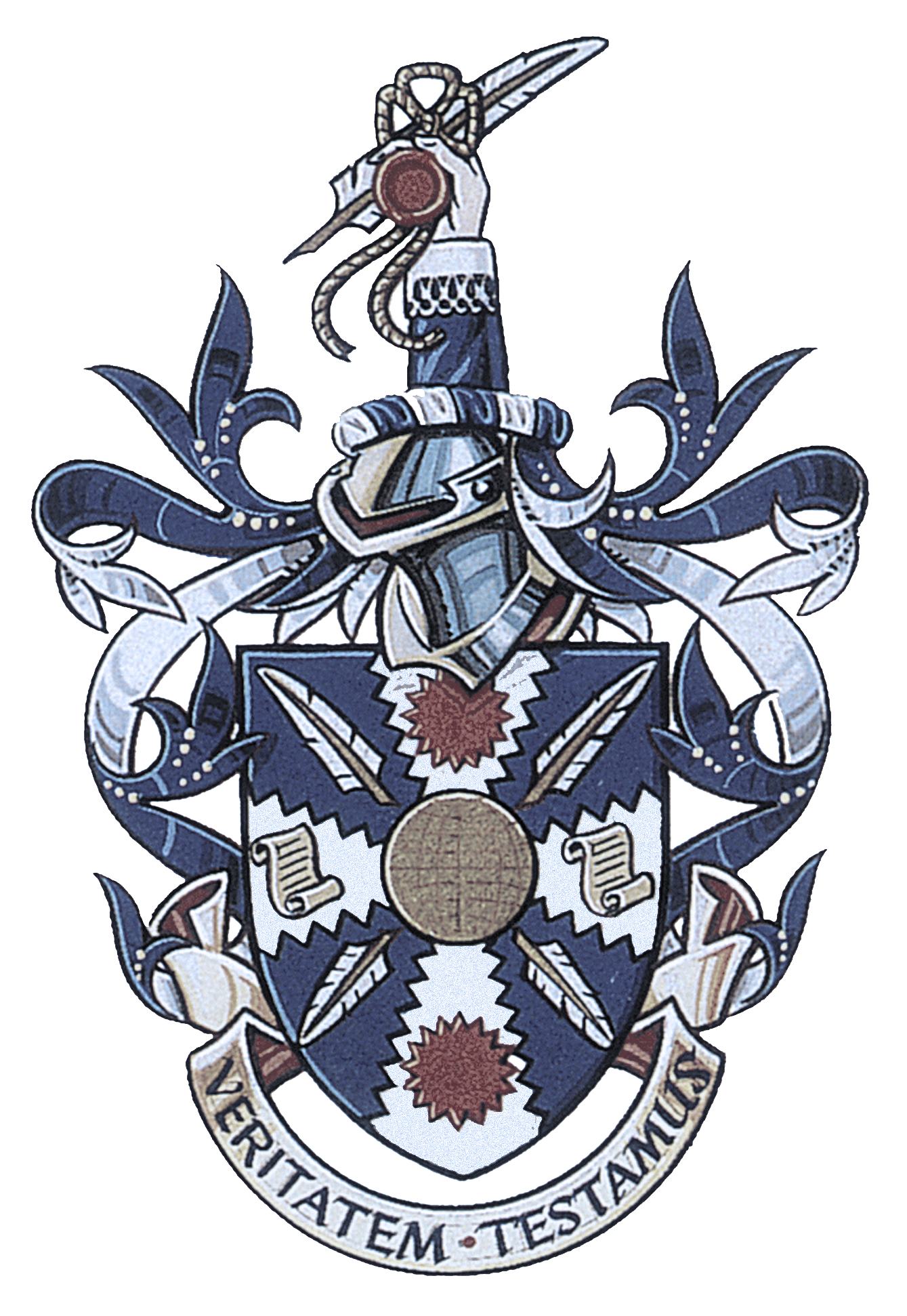Glossary
acknowledgment:
a document that records statements made to a Notary Public (by the person signing it) evidencing that is has been properly and voluntarily signed commonly required in the USA
affidavit:
a written and sworn statement of fact made by someone under an oath (in accordance with his or her religious beliefs) before a person authorised by law, including a Notary Public
affidavit of marital status:
a statement sworn by someone as to his or her freedom to marry under an oath (in accordance with his or her religious beliefs) before a person authorised by law, including a Notary Public
affirmation:
a written and signed statement of fact stated publicly by someone, not made under an oath, before a person authorised by law, including a Notary Public
apostille:
the seal of the Foreign and Commonwealth Office verifying the status of a Notary Public by his or her signature and official seal
articles of association:
a part of a company’s constitution along with the memorandum
attest (attestation):
to provide or serve as clear evidence
authenticate (authentication):
to establish that a document, deed, event or signature is true, genuine and valid
bill of exchange:
an unconditional order to pay a certain sum of money either immediately or on a fixed date for payment for goods or services, such as a cheque
board minutes:
a written record of board meetings providing evidence of matters discussed, directors’ decisions and any authorities granted
board resolution:
a decision taken by directors’ vote at board meeting recorded in the board minutes
certificate of good standing:
a certificate issued by Companies House usually authenticating the existence of a company and providing evidence of its officers and share capital
certificate of registration on incorporation:
the certificate issued by Companies House on the incorporation of a company
civil law:
a legal system originating in the civil institutions of ancient Rome and its written (codified) laws providing the primary source of law
common law:
a legal system which gives weight to previous (precedential) legal cases, based on fairness, so that consistent principles applied to similar facts give similar outcomes
Companies House:
the Government’s registrar of companies incorporated under Companies Act 2006 and limited liability partnerships registered under the Limited Liability Partnerships Act 2000
copyright:
an intangible intellectual property right granting the creator of an original work (such as a book or music) exclusive rights to its use and distribution, normally for a limited time
corporate governance:
boardroom practice, primarily in the listed sector, regulated by the Financial Conduct Authority, the Stock Exchange, Accounting Standards and Companies Act 2006
deed:
a document signed by the maker in the presence of an independent adult witness who then signs and adds his or her name to the document
deliver (delivery):
words or conduct which have the effect of the maker of a deed acknowledge that he or she intends to be bound by it
deposition:
a witness’ out-of-court testimony sworn under oath (according to his or her religious beliefs) which is part of an information gathering process and may sometimes be used in a trial
design rights:
intangible intellectual property rights, similar to copyright, but lasting only for fifteen years
direct notarial certificate:
a written document being a statement by a Notary Public about a document executed or deed executed and delivered by his or her client(s) – usually printed on a separate sheet of paper and secured to the executed document
double legalisation:
the two stage process where the Foreign and Commonwealth Office first verify the status of a Notary Public by affixing its apostille on a notarial act and then, if necessary, the further approval of the FCDO by the affixation of the seal of the Consul or Embassy of the government of its destination country
eschatocol:
a section at the end of a public form document containing an appreciation, means of validation of information and attestation of those signing it
execute (execution):
the signing of a document or a deed
Faculty Office of the Archbishop of Canterbury:
the office headed by the Master of the Faculties regulating the profession of Notary Publics under the Legal Services Act 2007
Foreign and Commonwealth Office (FCDO):
the British Government department responsible for promoting the UK’s interests abroad
ID:
identification documents
identification documents:
an original passport or card driving licence AND proof of residence dated within the last 3 months (by production of original bank statement, rates demand or utility bill) AND, if acting for a company, original board minutes, board resolution or list of company signatories containing authority to act
independent Non-Executive Director:
a company board director who is jointly responsible for monitoring the activity of the executive directors and contributing to strategy with the overall custodianship of the corporate governance process
Information Commissioner’s Office:
the office responsible for the enforcement of the Data Protection Act 1998 in relation to the privacy of data
intellectual property rights: intangible property rights including copyright, design rights, patents and trademarks
legalisation:
this can simply mean the FCDO’s affixation of its apostille on a notarial act confirming the status of a Notary Public, but it can also mean (and sometimes be called) “consularisation” or “super legalisation” being the further confirmation of the FCDO by the affixation of the seal of the Consul or Embassy of the government of the destination country
memorandum and articles of association:
a company’s constitution
NIE number:
a tax reference number required in Spain in certain situations such as where a non-resident foreigner buys property in Spain
NOBO:
the beneficial owner of shares in a company (where the legal ownership is held by another, such as a nominee) who (or which) does not object to his or her (or its) details being disclosed to the company
notarial act:
the act of a Notary Public, authenticated by his or her signature and official seal, certifying the signing in his or her presence of a document or deed or verifying some fact or thing done in his or her presence or which the Notary Public knows such as an acknowledgment or direct notarial certificate
notarial certificate:
a certificate signed by a Notary Public and sealed with his or her official seal
notarial protocol:
the register of notarial acts maintained by a Notary Public
Notaries Society:
the representative society for the 900 or so Notary Publics working in England and Wales
notarisation:
a form of legal certification by a Notary Public which states that a document has been signed authentically or is authentic or a true copy
notarised document:
a document or deed that has been certified by a Notary Public (by signing and affixing his or her official seal) to the effect that either the document or deed has been signed authentically or is authentic or a true copy
Notary Public:
an independently qualified lawyer, regulated by The Faculty Office of the Archbishop of Canterbury
oath:
a solemn vow
OCI visa:
a multiple entry life-long visa which enables the holder to have unlimited travel stay in India in certain circumstances
patent:
an intangible intellectual property right to protection of an invention for a period of time
power of attorney:
a written authorisation to represent or act on another’s behalf in business or private affairs or some other legal matter – which may be given by companies or individuals to a company or individuals
probate:
the legal document necessary to administer the estate of a deceased person
public form:
a notarial act in the form of a narrative act produced by a Notary Public which incorporates the execution of a document or the execution and delivery of a deed or the making of a declaration
Public Notary:
a Notary Public – as Notary Publics are sometimes called
ship’s protest:
a legal document that records and detail damages to a ship on entry to port
ship’s registration:
a process by which a ship is documented and nationalised in a country enabling it to travel internationally
statutory declaration:
a legal document similar to a sworn statement, not made under oath, declared by someone before a person authorised by law, including a Notary Public
sworn statement:
a statement or declaration sworn under on oath by someone (in accordance with his or her religious beliefs) declared before a person authorised by law, including a Notary Public
testimony:
oral or written evidence from a witness making a solemn statement or declaration of fact, normally made under oath
trademark:
an intangible intellectual property right to a recognisable sign, design or expression which identifies products or services from a particular source
verify (verification):
to demonstrate the truth or accuracy of a document, deed, event or signature

